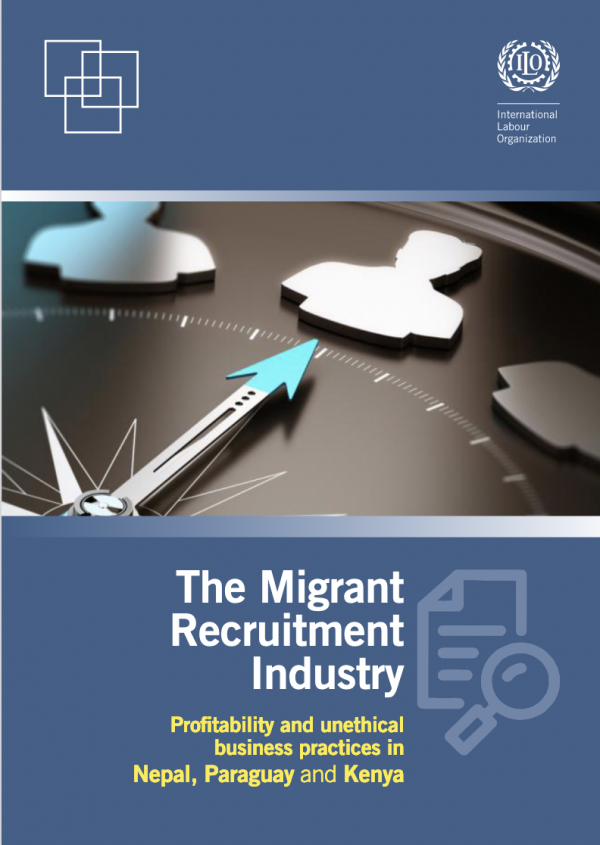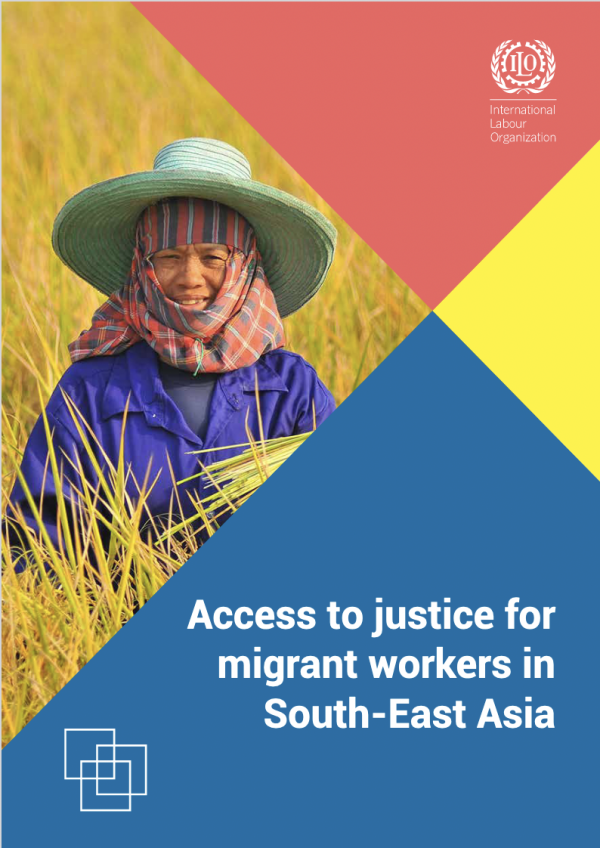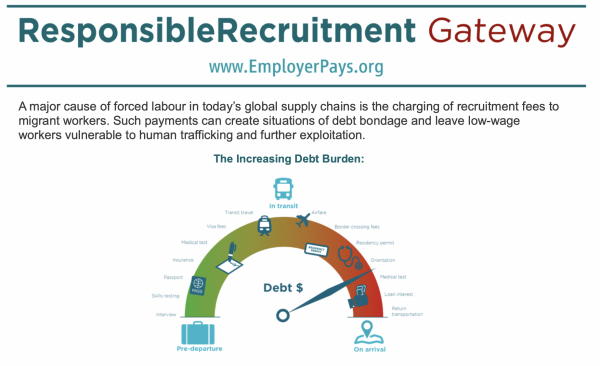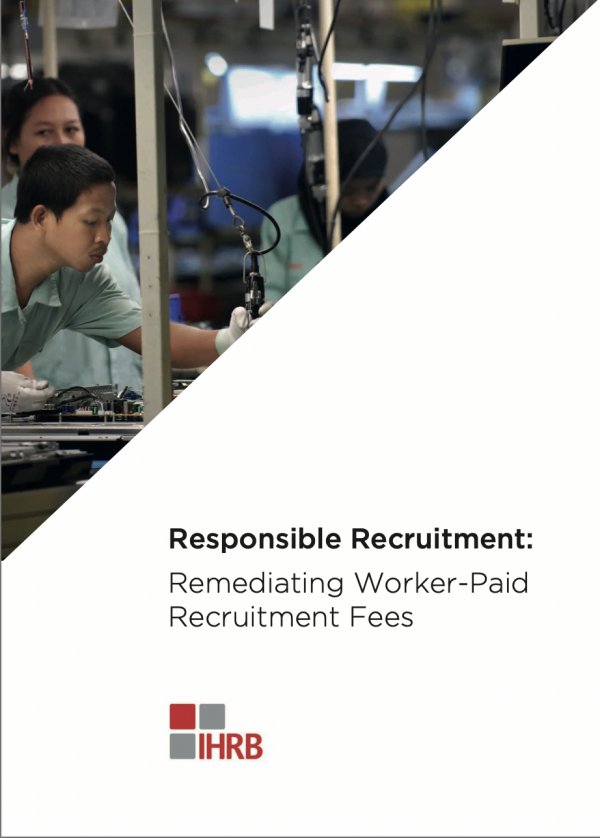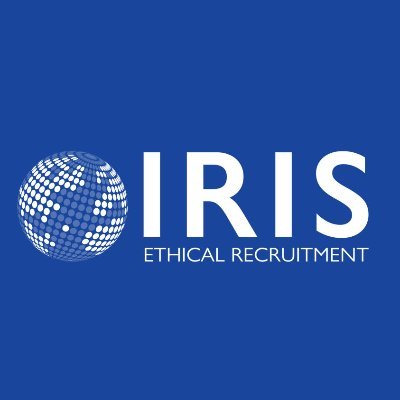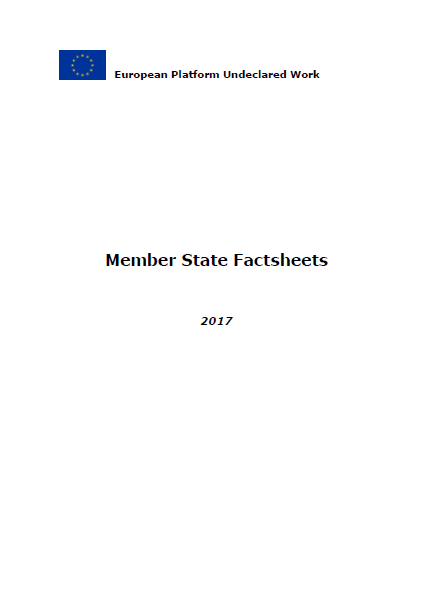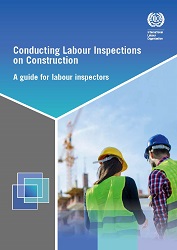Media-friendly glossary on migration
The use of the right terminology is key for quality reporting, to avoid stigmatization and positively influence the debate on migration.
- Available in Arabic, English, French, French (Madagascar), Nepali (English), Spanish and Vietnamese (English and Vietnamese).
- Adapted to the national context in Indonesia (Bahasa), Madagascar (French), Nepal (English), Thailand (Thai), and Vietnam (English and Vietnamese).
Type of document :
Country/Region : , , , , , , ,
Year of publication :
Theme :
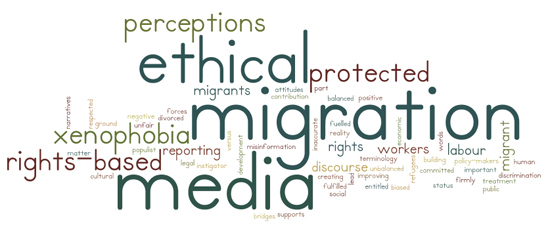
The Migrant Recruitment Industry, Profitability and unethical business practices in Nepal, Paraguay and Kenya
This publication documents the process of foreign recruitment in case-study migration corridors across different regions. The result of the research brings to the fore the abuse of migrant workers by recruiters and seeks to contribute to broadening the choices workers have to find decent work at home and abroad.
Type of document :
Country/Region : , ,
Year of publication :
Theme :
Access to Justice for migrant workers in Southeast Asia
This report analyses access to justice for migrant workers in South-East Asia and provides recommendations for improving complaint mechanisms for labour rights abuses.
Type of document :
Country/Region :
Year of publication :
Theme :
Responsible Recruitment Gateway
The Responsible Recruitment Gateway is home to the Employer Pays Principle increasingly being adopted by companies across sectors and around the world.
The Gateway hosts a growing resource bank to help companies move towards an ethical recruitment.
It is also a platform for the Leadership Group for Responsible Recruitment, convened by IHRB. All members of the Leadership Group are publicly committed to the Employer Pays Principle and its implementation throughout their supply chains. The Leadership Group's aim is bold - the total eradication of fees being charged to migrant workers to secure employment
The Leadership Group acts as a vehicle for advocacy and collaboration, and serves as a knowledge hub for sharing good practice, tools, and guidance in relation to responsible recruitment. To achieve its vision of a world where no worker pays fees to secure employment, the Leadership Group seeks to catalyse leadership among an expanding membership base of companies committed to responsible recruitment.
Type of document :
Country/Region :
Year of publication :
Theme : ,
Responsible Recruitment: Remediating Worker-Paid Recruitment Fees
This report focuses on the sixth step concerning remediation. Some companies have sought to reimburse worker-paid recruitment fees. This is an important step and consistent with the UNGPs which calls on companies to provide for or cooperate in remediation when they have caused or contributed to adverse human rights impacts. However, businesses face serious challenges in repaying affected migrant workers. This report identifies the challenges related to reimbursing recruitment fees and provides recommendations to businesses on how to apply remediation policies across their activities.
Type of document :
Country/Region :
Year of publication :
Theme : ,
IRIS Ethical Recruitment
IRIS: Ethical Recruitment is IOM's flagship initiative to promote ethical recruitment of migrant workers. It has been created by IOM and a coalition of partners from government, civil society and the private sector. IRIS is a global multi-stakeholder initiative that supports governments, civil society, the private sector and recruiters to establish ethical recruitment as a norm in cross-border labour migration.
The goal of IRIS is to make international recruitment fair for everyone involved: migrant workers, employers, recruiters and countries of origin and destination. It does this by:
- Promoting respect for the rights of migrant workers;
- Enhancing transparency and accountability in recruitment;
- Advancing the Employer Pays Principle; and
- Strengthening public policies, regulations and enforcement mechanisms.
IRIS is referred to under Objective 6 of the Global Compact for Safe, Orderly and Regular Migration and a number of other inter-governmental frameworks.
IRIS priorities include: 1) awareness raising and capacity building, 2) migrant worker voice and empowerment, 3) the regulation of international recruitment, 4) voluntary certification of private recruitment agencies, and 5) stakeholder partnership and dialogue.
Type of document :
Country/Region :
Year of publication :
Theme : ,
Undeclared work in European countries
Undeclared work (UDW) is a major issue which affects governments, businesses and workers across Europe.
It can have far-reaching consequences for individuals, firms and societies, including
- breaches of workers’ rights,
- unfair competition,
- reduced tax revenues.
European countries are affected differently by UDW. The Platform has produced factsheets summarising the characteristics of UDW across all 27 EU countries, and the institutions and policy responses currently used to address it. Click on the countries below to see the factsheets, as well as example of practices used to tackle UDW.
Type of document :
Country/Region :
Year of publication :
Theme :
Conducting Labour Inspections on Construction - A guide for labour inspectors
The objective of this guide is to assist labour inspectors fulfil their inspectorial function by providing information, in a user friendly format on, a suggested methodology for conducting inspections of construction activities; from planning to reporting on the inspection, as well as providing technical information which labour inspectors can supply to employers and workers, so as to ensure “Decent Work”.
The construction sector plays an essential role in the socio-economic development of many countries, not least through the number of workers engaged in construction activities. However the employment relationship, the legal link between employers and workers, in construction activities is often unclear and this regularly results with workers not having access to certain rights and benefits, combined with this, workers are often exposed to many hazards. These factors mean that working conditions on many construction sites cannot be considered as “Decent work”, workers do not have a fair, just, safe and healthy working environment.
Inspections conducted by labour inspectors have an important role in ensuring compliance with legislation and thus decent working conditions for workers in all sectors, including construction. The guide details many of the working conditions that labour inspectors will address, namely, the employment relationship, representation rights, salaries and wages, working hours and holidays, employment of young person’s and foreign nationals as well as the hazards that workers can be exposed to. Internationally recognised safety measures are documented that, if followed, will reduce the likelihood of workers suffering from accidents and diseases.
Type of document :
Country/Region :
Year of publication :
Theme : ,
Subscribe to the Fair Recruitment Initiative Newsletter
Sign up to receive news delivered to your inbox.

